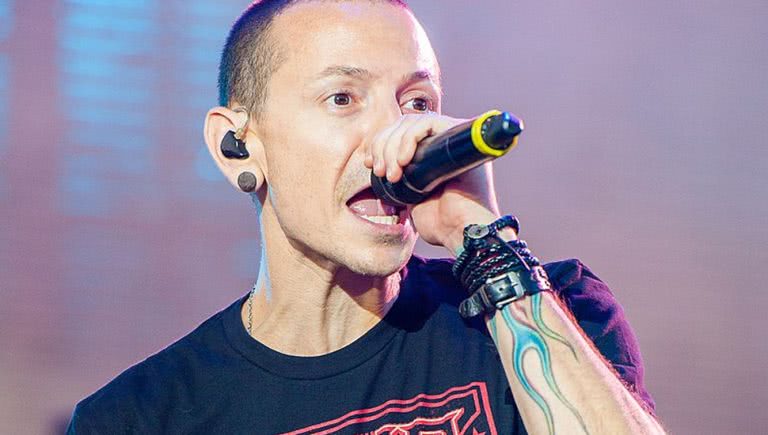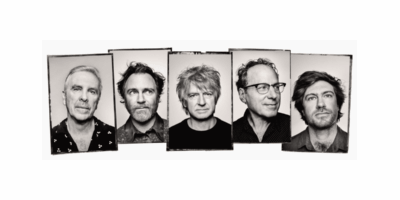Content Warning: This article discusses mental health, depression, and suicide. If you or someone you know are affected by the following story, you are not alone. To speak to someone, you can call Lifeline on 13 11 14.
Recently, the third anniversary of the death of Chester Bennington passed, and fellow bandmate of Grey Daze, Sean Dowdell, has spoken up about the state of Bennington’s mental health prior to his death.
It’s been three years since Linkin Park’s frontman Chester Bennington ended his struggle with mental health, and now his fellow bandmate from his earlier band, Grey Daze, has spoken out about the depression, suicidal thoughts, and substance abuse that Bennington struggled with.
Sean Dowdell, drummer for Grey Daze, recently spoke to Finland’s Kaaos TV, about the life of Chester Bennington, and the struggle he faced.
“We talked about some of those issues he had several times, of course,” Dowdell mentioned. “First of all, he was a very happy person most of the time. And that’s the way, I think, depression works — the person that you see outwardly 99 percent of the time are high on life and [in] good spirits and are fun to be around and they’re laughing all the time.”
Comparing Bennington to Robin Williams and Anthony Bourdain, who both were outwardly happy, he noted that Bennington’s attitude was very much “brighter-than-the-sun,” noting that “the pain he was feeling he didn’t outwardly share.”
“I saw it several times, of course, throughout life, but it was not something that stuck around for long periods of time,” he detailed.
Love Music?
Get your daily dose of metal, rock, indie, pop, and everything else in between.
In the months leading up to Bennington’s death, the Grey Daze drummer did reveal that the Linkin Park frontman was extremely sensitive to criticism, which amplified his negative thinking.
“I’m gonna say a few things here. It may not be very popular, but it’s the truth,” Sean noted. “And not that I wanna bring the Linkin Park guys into the conversation, but I think they would agree with this. When they did the One More Light album, it wasn’t received the way they thought it was gonna be received, or at least the way Chester thought it was gonna be received, and he got a lot of negativity from fans, and it really bothered him.
“And we talked about that a lot. He would just be so bummed out and he would blast people on Twitter, and he would get upset. And I would tell him: ‘Dude, don’t let these people bring you down. It’s not worth it. The music is good, man. Don’t worry about this kind of crap.'”
With Linkin Park “working so hard on putting those records together,” Dowdell noted that the collective was “so used to having these accolades and this adulation from their fanbase,” and when One More Light was unliked by “that five percent of people that just [complain], and they spend so much time — these losers in their basement, I like to call ’em — where all they have is just time to sit there and write on a keyboard about what a loser you are. It’s, like, what have you done with your life?”
Apparently, the criticism he received “really weight on him,” and Dowdell believes that it “really contributed to part of his head spot,” as well as “some sexual abuse as a child,” which kind of combined into a place of mental health that wasn’t stable.
“Chester never felt good enough or never felt appreciated or never felt like he was worth it. He had this emptiness inside that I don’t think he could really explain to a lot of people,” he remarked.
“I got to know this side of him quite well. He could have a thousand people, after a show, wanting to meet him and tell him how great he is and how much he touched their life in a profoundly emotionally positive way, gave them an outlet for their own pain and their own distress, and internally, Chester would not hear that.
“He would say, ‘Thank you,’ and he would still feel like he wasn’t enough. We’d have this conversation, and he’d be, like, ‘I just don’t feel like I’m smart enough. I don’t feel like I’m good enough.’ And I’d go, ‘Chester, you are such a good person. Forget the singing. I don’t care about you as a singer; I care about you as a human being. I don’t care that you are a great singer. I care that you are such a good person.’ He was one of the best friends you could ever have.”
Check out the full interview between Grey Daze drummer Sean Dowdell and Kaaos TV:
https://youtu.be/tnd66fZ6EYM


































